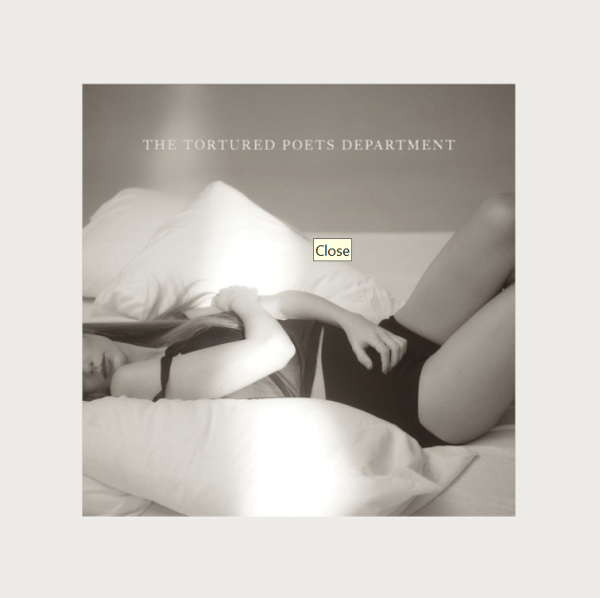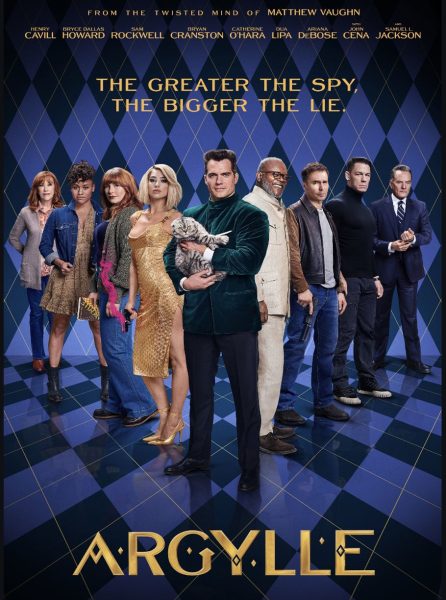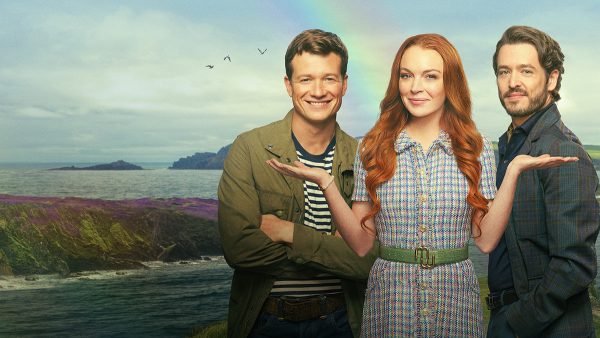Golden Globes Honor Best in TV and Film
The Hollywood Foreign Press Association delivers a night dominated by empowering speeches and appropriate doses of humor
January 15, 2018
Award season is back! The next couple months will no doubt be buzzing with EGOT (Emmy, Grammy, Oscar, and Tony) predictions, so it’s always great to warm up with the left-out Golden Globes as a primer. The awards show is just as star-studded, hosted by the same late-night funnymen, and is unique because it honors both television and film, dividing each into comedy and drama categories. This year’s Globes delivered a highly entertaining show dominated by appropriate doses of humor from host Seth Meyers and, most importantly, discussion of the #TimesUp movement, a campaign to end sexual harassment in Hollywood and the workforce.
Meyers, host of Late Night with Seth Meyers on NBC, is known for his left-leaning stances and willingness to boldly criticize current politics while others (I’m looking at you, Jimmy Fallon) might hold back. He kept this fire the entire night of the Jan. 7 Globes, making pointed jabs at producer-slash-rampant-sexual-deviant Harvey Weinstein (“Harvey Weinstein isn’t here tonight because, well, I’ve heard he’s crazy and difficult to work with. But don’t worry, he’ll be back in 20 years when he’s the first person ever booed during the in memoriam”) and actor-slash-accused-child- molester Kevin Spacey (“I was happy to hear they’re going to do another season of House Of Cards. Is Christopher Plummer available for that too? I hope he can do a southern accent because Kevin Spacey sure couldn’t… Oh was that too mean? To Kevin Spacey?”). Meyers also integrated a popular segment of his into the show- “Jokes Seth Can’t Tell”, where his minority writers and guest stars tell off-color punchlines that are more politically correct when not spoken by a straight, white man- into the Golden Globes with celebrities in the audience. Meyers’ humor, as well as that of many presenters, was perfectly suited to the tumultuous tide in Hollywood as it showed a respectful understanding of gender and race issues while still pushing enough boundaries to be cutting and incisive on how Hollywood should navigate things going forward.
One of the standout moments of the night for many was Oprah Winfrey’s acceptance speech for the Cecil B. DeMille lifetime achievement award. It summed up the most important message of the #TimesUp movement- the need for a complete paradigm shift in gender and race politics. She started by explaining how one of the most formative experiences of her life was watching Sidney Poitier accept an Oscar Award in 1964, the first black man to do so. She said, “It is not lost on me that there are some little girls” watching her speech with same adoration she watched Poitier all those years ago, illustrating the persistent diversity issue in awards shows and Hollywood as a whole. She stated that, “[A free press is valuable] More than ever before as we try to navigate these complicated times. What I know for sure is that speaking your truth is the most powerful tool we have,” and continued by saying sexual harassment is a problem that transcends any work field, culture, or country. In the days since the Globes, Winfrey’s speech has been lauded for its rousing spirit. Poignantly, the very next award for Best Director a Motion Picture-Drama was dominated by men- a fact presenter Natalie Portman did not let go unnoticed by the audience.
As for the awards, it was certainly a stacked year for movies. Heavyweights Daniel Day-Lewis, Tom Hanks, and Gary Oldman were pitted against each other in Best Actor in a Motion Picture-Drama, while the all-critically-acclaimed Lady Bird, Get Out, and The Disaster Artist fought over Best Motion Picture-Musical or Comedy. The Shape of Water, a fantastical Guillermo Del Toro film set in 1962 about a mute custodian who befriends and falls in love with an amphibian creature in a government laboratory, received the most nominations, with 7, while 3 Billboards Outside Ebbing, Missouri, a dramedy by Martin McDonagh that follows a mother fighting her local police force’s apathy in solving her daughter’s murder case, won biggest with 4 awards. Perhaps the funniest moment of the night was when James Franco invited Tommy Wiseau (who he portrayed in The Disaster Artist) onstage, only to have the latter try to wrangle the mic from him during his acceptance speech, a fitting move for the eccentric director.
Television was less competitive, as miniseries Big Little Lies won 4 of their 6 nominations and The Handmaid’s Tale and The Marvelous Mrs. Maisel dominated their respective categories. Notable wins included Aziz Ansari for Best Actor in a Television Series – Musical or Comedy. Though he was nominated for the same award last year, it took him an extra year to snag it for his hit Netflix show Master of None (In a troubling development, the star wore a #TimesUp pin when he received his award yet has been accused of sexual misconduct in the days following, a sign that not everyone cheering for the movement may have been doing so truthfully. James Franco, who won the award for Best Actor in a Motion Picture-Musical or Comedy, has also been accused of sexual assault since the Globe.)
The Golden Globes were a night that not only awarded stars for their outstanding performances onscreen but also continued the trend of spreading important social commentary (see #OscarsSoWhite of 2016). And while it’s nice and certainly important to see all-black attire and pins adorning men’s lapels in solidarity of the cause, it is clearly not enough. It is imperative that organizations like the #TimesUp legal fund continue to receive huge donations in the future as it has in the week since the Globes, and it is imperative that everyone in Hollywood work to dismantle the current gender and race hierarchy if they hope to make tangible progress towards equality.
The full list of awards can be found here: https://en.wikipedia.org/wiki/75th_Golden_Globe_Awards
The Time’s Up Now movement can be explored further here: https://www.timesupnow.com/












